We have much more to do and your continued support is needed now more than ever.
Campus Race to Zero Waste 2023 Best Practices
College and university partners serve as models of innovation and impact in reducing their waste footprint
Campuses across the U.S. divert waste from the landfill through move-out collections, distribute reusable to-go containers in campus dining halls, and recover food waste for use in the community. These are just a few of the college and university efforts to engage students, faculty and staff in advancing waste minimization and zero waste efforts on campus.
During the 2023 Campus Race to Zero Waste competition in the spring, campus participants donated, composted and recycled 29.4 million pounds of waste, keeping more than 205 million single-use plastic containers out of the landfill. As part of the annual competition, each year the Campus Race to Zero Waste (formerly called RecycleMania) program calls for best practice case studies from campuses across the U.S. and Canada to showcase programs and strategies in zero waste, waste diversion from the landfill, food waste reduction, and education and awareness.
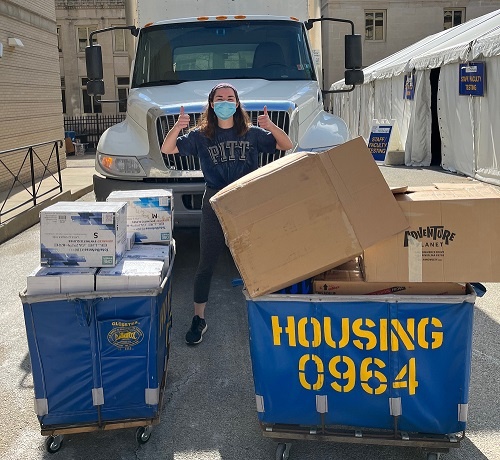
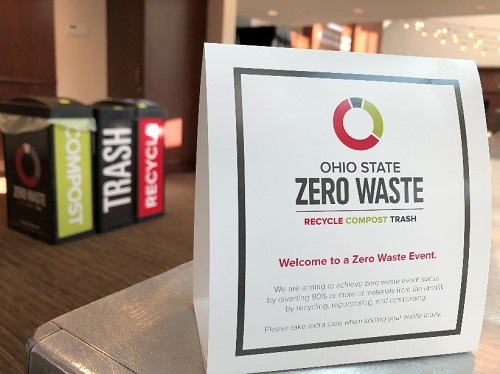
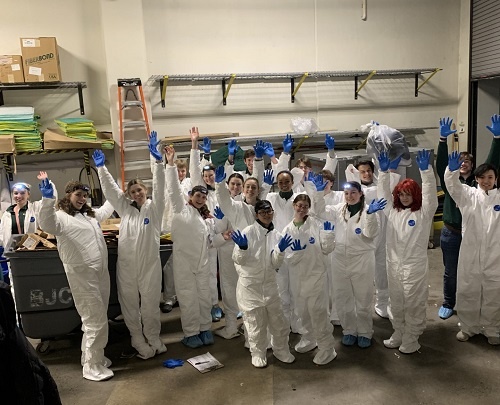
The case study resource is a great opportunity to gain recognition for campus efforts to reduce waste and to share helpful information for campuses that are working on similar efforts. Winners are recognized in four categories: waste diversion, zero waste, food waste reduction, and education and awareness. Judging is based on criteria including creativity, transferability (how easily could the initiative be replicated), and measurable impact.
We are excited to announce the winners of the 2023 Campus Race to Zero Waste Case Study Competition:
- Zero Waste Winner: Valparaiso University, Indiana
- Waste Diversion Winner: Macalester College, Minnesota
- Food Waste Reduction Winner: The Ohio State University, Ohio
- Education and Awareness Winner: Towson University, Maryland
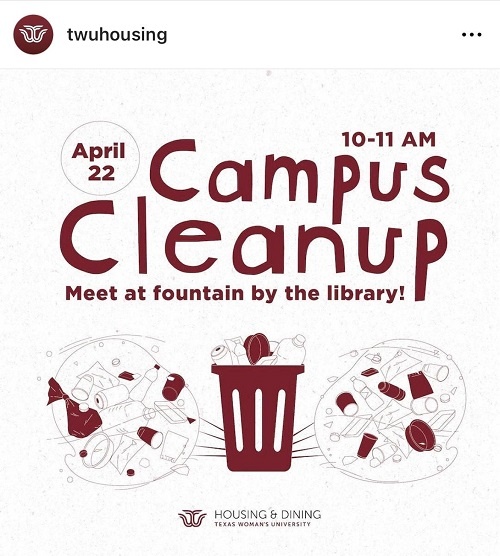
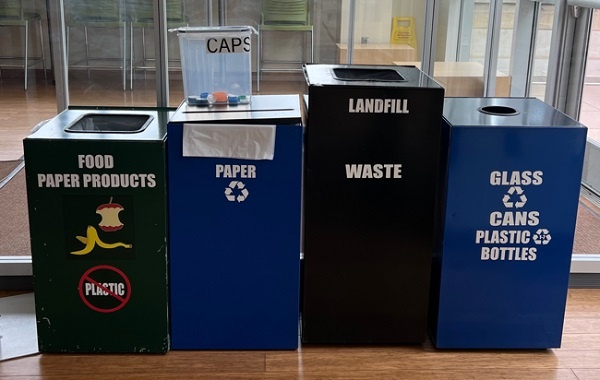
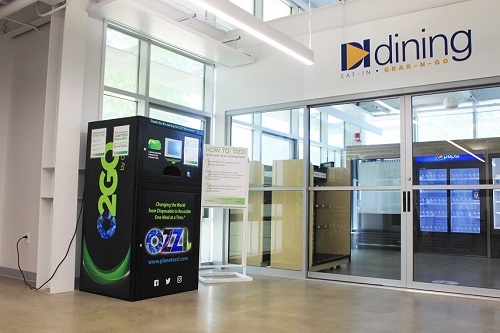

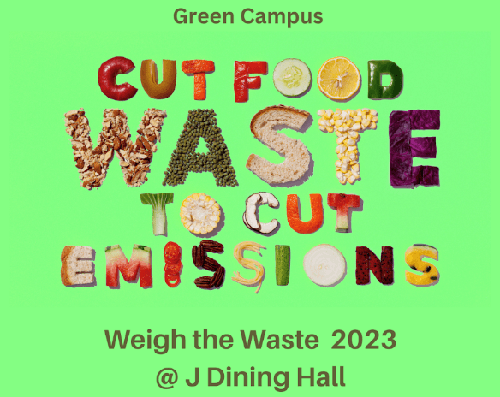
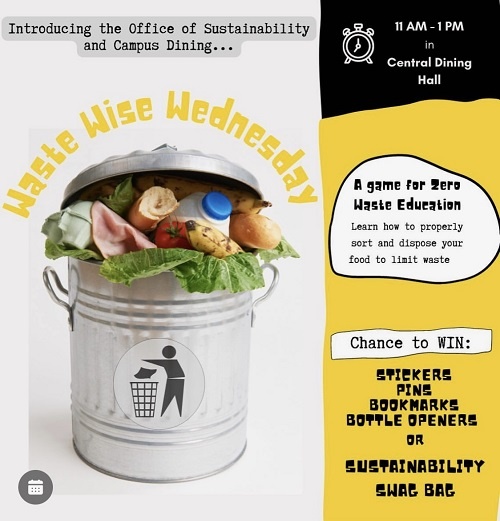
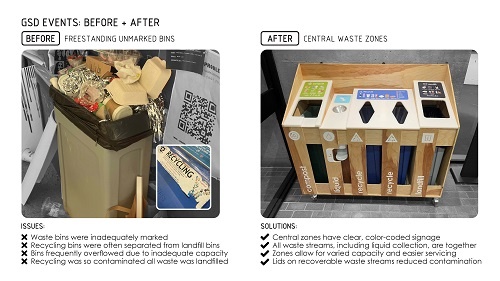
Check out all 2023 Campus Race to Zero Waste Case Studies:
Waste Diversion
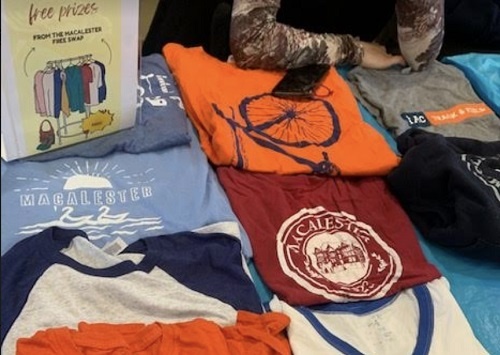

- Amherst College implements a campus closed-loop system across the annual Move Out / Move In cycle that minimizes waste to the landfill.
- Chapman University’s “Ditch the Dumpster” program diverts waste from the landfill during the student move-out by offering accessible, one-stop donation stations.
- Hope College collects clothing items from students and hosts thrift shop, diverting clothes from the landfill.
- Kent State University implements a reusable to-go container program, avoiding the generation and disposal of 60,000 containers in one year.
- Macalester College collects and redistributes campus swag items, diverting them from landfill.
- Pennsylvania State University pilots “Green Basketball Game” initiative that sorts, weighs, and disposes of all waste generated during the game.
- Raritan Valley Community College records and analyzes the recycling trends at RVCC to find tangible solutions to increase recycling and composting campus.
- University of Massachusetts Amherst’s New2U move-out collection and move-in sale diverts useful items from landfills and keeps them in the hands of students.
- University of Pittsburgh’s annual Clean & Swap event ensures office, laboratory, and other campus materials find their best next homes.
- University of South Florida benchmarks to measure outgoing waste, identifying the challenges and opportunities for diversion and reduction.
- Valparaiso University creates a pilot program in residence halls to see if personal recycling containers help increase the recycling rate.
Zero Waste
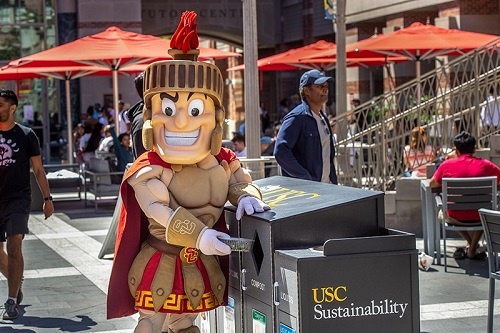
- Harvard University’s Zero Waste Project consolidates unmarked bins into zones at campus events to improve diversion rates, reduce contamination, and initiate a discourse on waste.
- University of Southern California enacts a policy prohibiting single-use plastic beverage bottles from all university events and operations.
- Valparaiso University takes steps to reduce the number of plastic liners being used in trash and recycling containers.
Food Waste Reduction
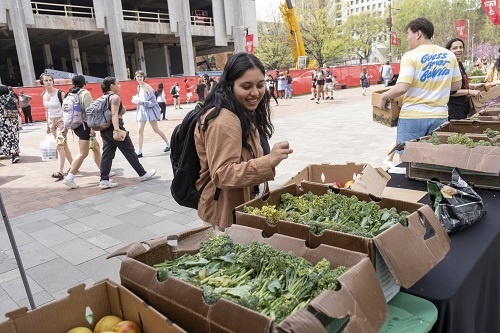
- Cal Poly Humboldt’s Weigh the Waste is an educational program with a goal to achieve food waste reductions in dining halls.
- Central Michigan University’s Central Sustainability partners with Dining to offer food waste education in dining halls by weighing food left on students’ plates.
- Endicott College’s Show the Waste focuses on food waste reduction by putting “wasteful plates” on display in the main dining hall through a meal period.
- Salisbury University brings awareness to post-consumer food waste generated at the Commons Dining Hall.
- St. Lawrence University develops a toolkit to conduct audits and measure the impact of educational materials on attitudes and understanding of food waste impacts.
- Temple University’s Share Fair, a large-scale high-visibility event, demonstrates the circularity of food on campus and in our urban community.
- The Ohio State University facilitates peer-to-peer engagement, collaborative learning opportunities, and reducing recidivism though campus-wide compost expansion.
- University of Pittsburgh diverts food waste from campus dining locations and off-campus restaurants to local hunger-fighting organizations.
- Virginia Wesleyan University implements a composting program at the campus’ dining facility.
Education and Awareness
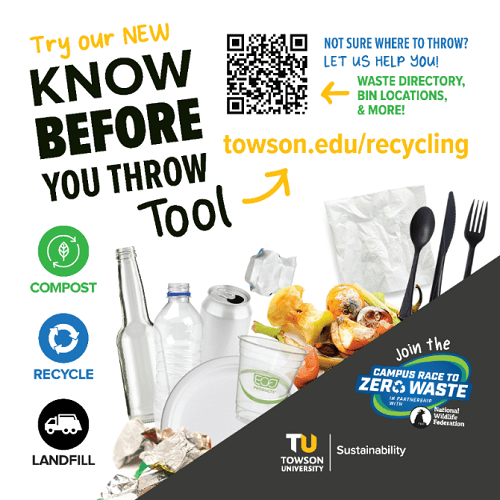
- Agnes Scott College increases campus awareness about best composting practices and increases composting in dining hall.
- Appalachian State University educates students on how to better sort their waste inside the dining hall in a fun and interactive way.
- Emerson College hosts an Upcycled Art Competition: A student event to turn “trash” into art.
- SUNY Brockport’s annual undergraduate research conference “Scholars Day” 2023, focuses on the theme of Sustainability.
- Texas Woman’s University hosts green room certification, a sustainability week in the fall, and more to engage the campus community in education and awareness.
- Towson University campaign focuses on educating the TU community on waste minimization and diversion efforts through the promotion of a new digital waste search directory.
- Worcester Polytechnic Institute’s Project Zero Waste is a campaign meant to raise awareness of food waste in the main dining hall as well as catalog the waste produced.
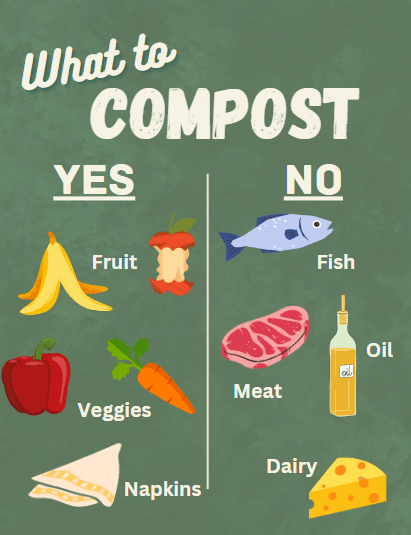
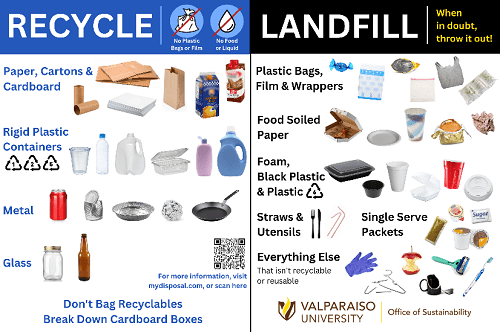
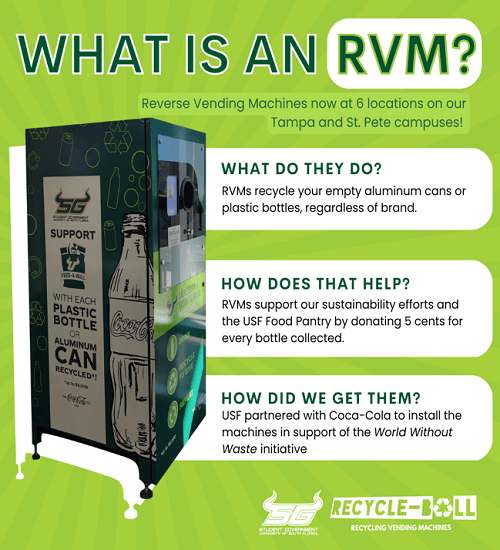
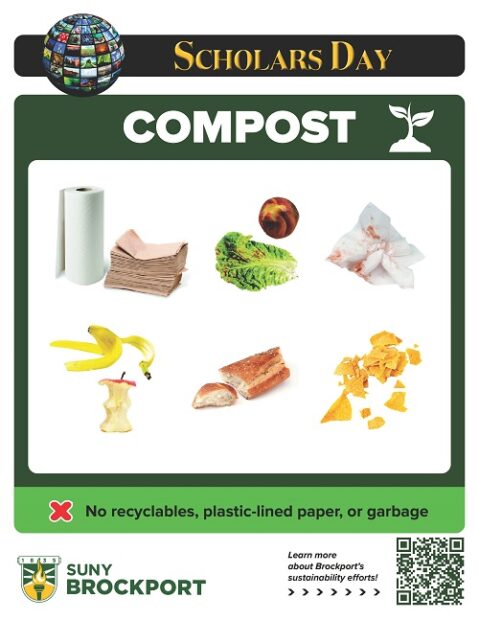
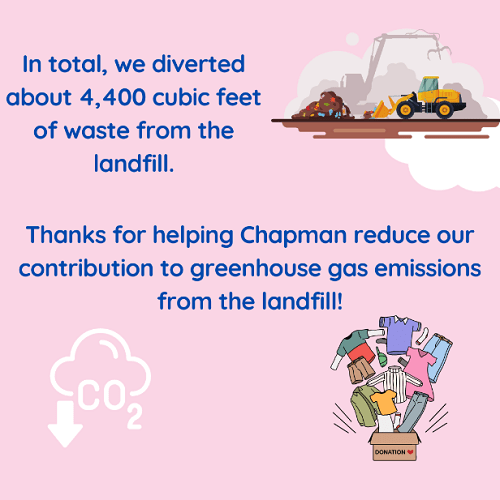
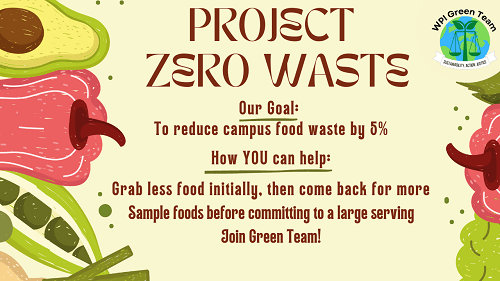
Check out the 2023 Campus Race to Zero Waste case studies and the final results of the 2023 Campus Race to Zero Waste competition. The 2024 Campus Race to Zero Waste competition will open for registration in early October, learn more here.
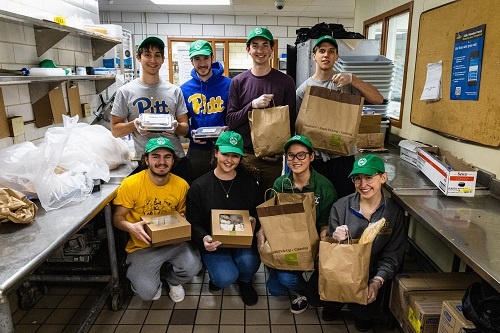
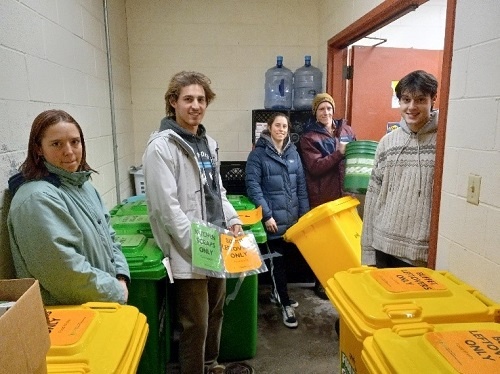
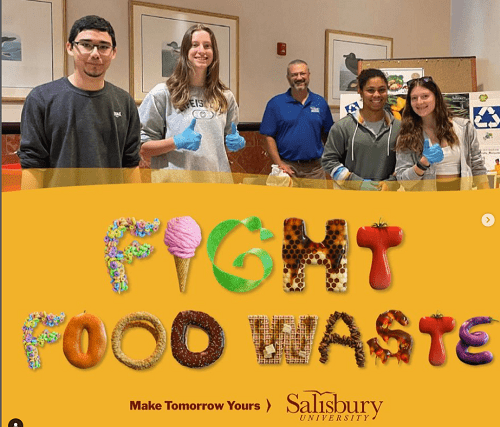
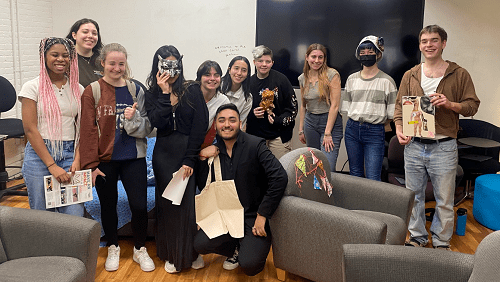
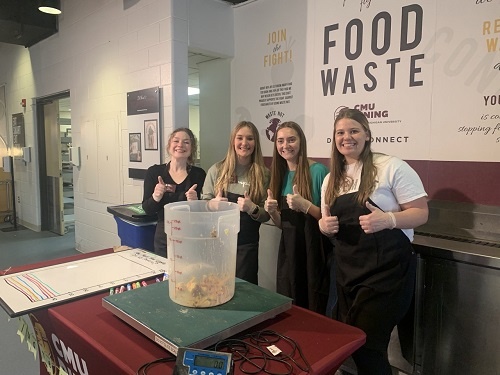
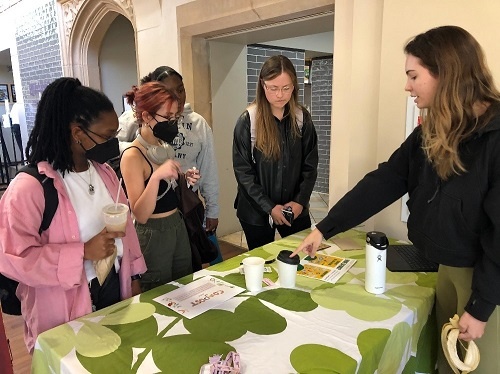
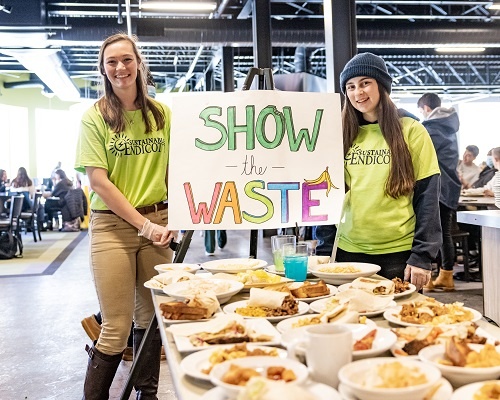
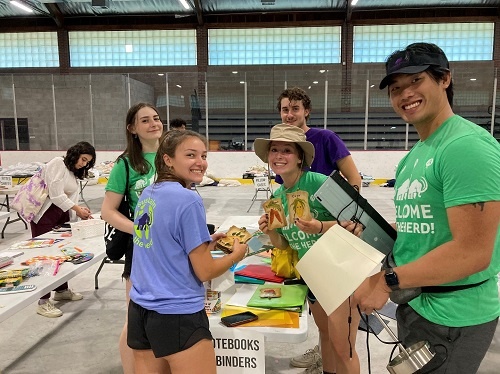
About Campus Race to Zero Waste
Campus Race to Zero Waste – formerly known as RecycleMania – is the nation’s premier waste reduction and recycling competition among colleges and universities, managed by National Wildlife Federation, and governed by RecycleMania, Inc.
Campus Race to Zero Waste has been helping campuses minimize waste and improve their reuse and recycling efforts, since its launch in 2001. To date, over 1,100 colleges and universities in the U.S. and Canada have participated in the Campus Race to Zero Waste program, diverting more than 1,129 million pounds of waste through minimization efforts, donation, reuse, composting, and recycling. Through these efforts, campuses have also prevented the release of nearly 1.7 million metric tons of carbon dioxide equivalent, which is comparable to removing over 352,000 gas engine passenger vehicles from the road for one year.






















